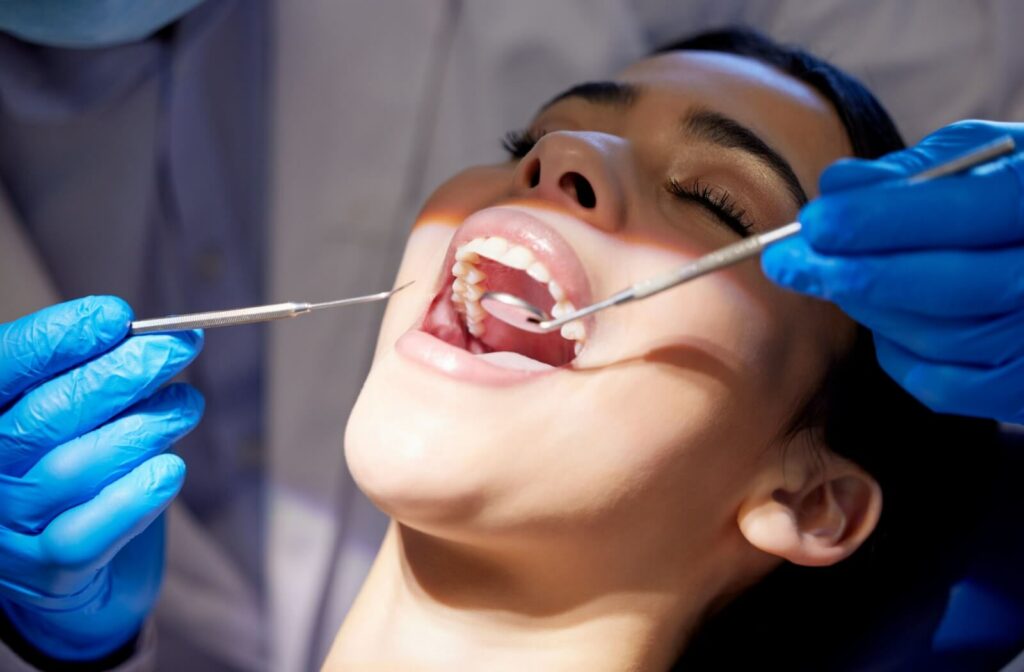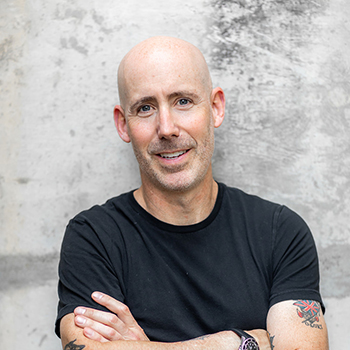Keeping your teeth clean isn’t just about having a dazzling smile—it’s a critical component of overall health. There isn’t a one-size-fits-all answer for how long a dental cleaning takes, because it can vary based on several factors. However, most people can expect the average cleaning to take between 30 minutes and an hour.
Regular dental cleanings are essential for maintaining healthy teeth and gums, preventing cavities, and avoiding complex dental issues that require more intensive restorative treatment later on. While the thought of visiting the dentist can be daunting for many, understanding what happens during a cleaning and how long it takes can make the experience more comfortable.
What to Expect During a Dental Cleaning
No 2 dental exams and cleaning appointments will be identical, but one can expect a few common themes.
Preliminary Oral Exam
Before the actual cleaning begins, your dental hygienist will typically perform a thorough preliminary oral exam. This involves checking for any obvious issues, such as inflamed gums, signs of decay, or other abnormalities. This step is crucial, as early detection of potential problems can prevent more extensive treatments later.
Removal of Plaque & Tartar
Once the initial examination is complete, the next step usually involves removing plaque and tartar buildup. Even with diligent brushing and flossing, plaque can accumulate on your teeth. If not removed, it hardens into tartar, which typically requires a professional to remove.
The hygienist uses specialized tools to scrape away this buildup, focusing on the areas around your gum line and between your teeth.
Polishing & Flossing
After the plaque and tartar are removed, the hygienist typically polishes your teeth. This process not only makes your teeth look shiny but also smooths their surface to make it harder for plaque to accumulate. The paste used for polishing often has a gritty texture that gently scrubs the teeth.
Once the polishing is done, the hygienist will floss your teeth to remove any remaining debris and check the cleanliness of the space between your teeth.
X-Rays in a Dental Cleaning
X-rays are an integral part of dental examinations, as they provide a comprehensive view of your oral health. During a dental cleaning visit, X-rays can help identify issues that aren’t visible during the initial oral exam.
This includes problems like bone loss, abscesses, or deep cavities. While X-rays aren’t typically taken at every cleaning visit, they’re usually done annually or as recommended by your dentist.
How Long Does a Typical Dental Cleaning Take?
A standard dental cleaning typically takes 30 minutes to an hour, but this can vary from person to person and even between appointments. Another consideration is that your dentist appointment will often be more than just a cleaning. A professional dental cleaning often involves a thorough examination of your mouth and oral health by your dentist.

Factors Affecting the Duration of a Dental Cleaning
The following are a few factors that could affect the length of your appointment.
Individual Oral Health
The state of your oral health significantly impacts how long a dental cleaning takes. If your teeth and gums are in good condition and free of extensive plaque or tartar, the cleaning will usually be quicker. Alternatively, if you’ve neglected your oral hygiene, you can likely expect the cleaning to take more time.
Your daily oral hygiene habits also affect the duration of the cleaning. Regular brushing, flossing, and the use of mouthwash can minimize plaque and tartar buildup, leading to a faster and less intensive cleaning session.
Presence of Periodontal Disease
For those with periodontal disease, the cleaning process can be more involved. Periodontal disease, or gum disease, affects the gums and bone supporting your teeth and requires a deeper cleaning known as scaling and root planing. This procedure is more time-consuming and may require multiple visits.
Post-Cleaning Care & Maintenance Tips
Your dentist and their team are integral to your oral healthcare, but the most important part of your routine is arguably your daily care practices at home.
Advice on Oral Hygiene Practices
After a dental cleaning, maintaining good oral hygiene practices is crucial. Brush your teeth at least twice a day using fluoride toothpaste and a soft-bristled toothbrush. Floss daily to remove plaque and food particles stuck between your teeth, and consider using an antiseptic mouthwash to kill bacteria that can cause plaque and gum disease.
Importance of Regular Follow-ups
Regular follow-up appointments with your dentist are essential to maintain your oral health. These visits allow your dentist to monitor your dental health and catch any issues early. Aim to have a dental cleaning at least twice a year, or more frequently if recommended by your dentist.
Dental Cleanings for Long-term Oral Health
Regular dental cleanings are vital for maintaining long-term oral health. They help prevent cavities, tooth decay, and gum disease, ensuring your smile stays healthy and radiant. Understanding the process and what to expect can alleviate anxiety about dental visits.
You can enjoy the benefits of a healthy mouth and a confident smile by investing time in regular cleanings and following good oral hygiene practices. Call Belman Dental Centre today to request an appointment for your next dental cleaning and take a proactive step toward optimal oral health.



